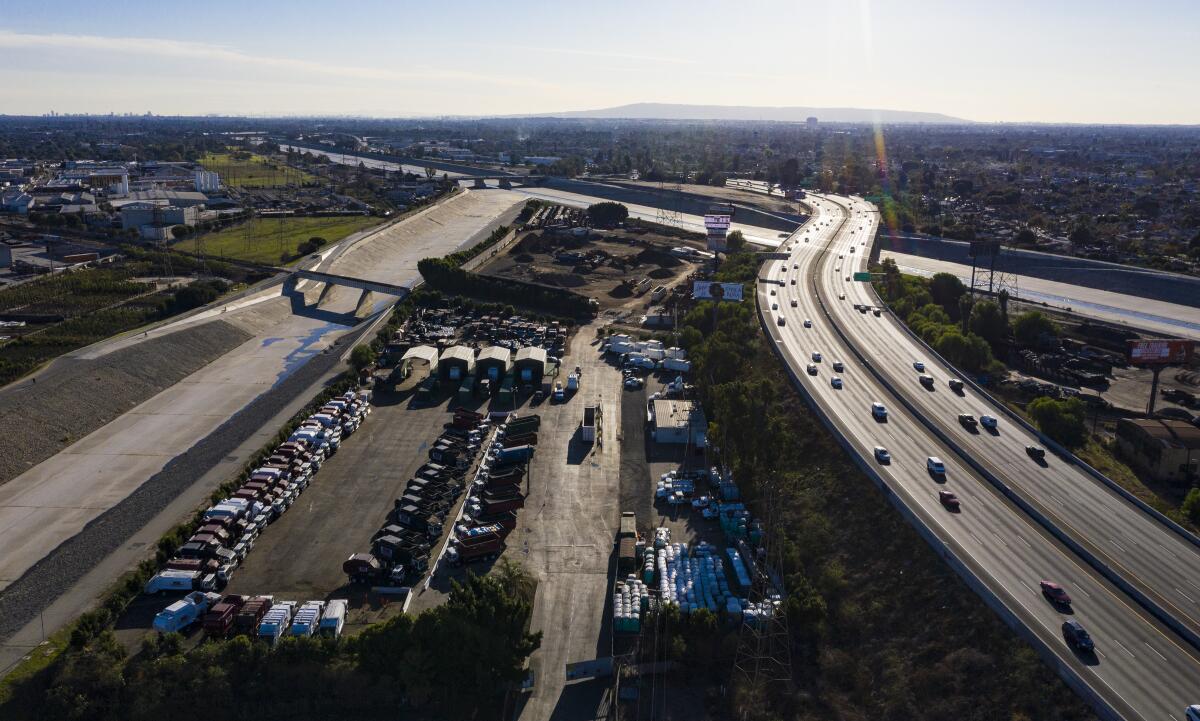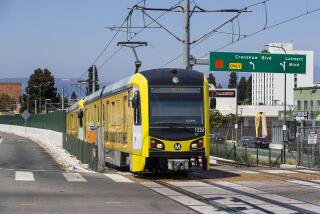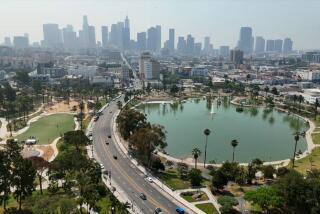Editorial: The 710 expansion is a zombie project from another era

For nearly two decades, the Los Angeles County Metropolitan Transportation Authority has been seeking to widen the 710 Freeway from Long Beach to Alhambra, a notoriously congested stretch of roadway crowded with diesel trucks serving the ports.
Even as residents in surrounding communities pleaded for a better solution, even as other freeway widenings failed to solve congestion, and even as California began to judge transportation projects based on their climate and development impacts, the 710 expansion kept moving forward, like a zombie project from another era.
Until now.
On Thursday, Metro’s governing board may halt the freeway widening to focus instead on smaller projects — including building bike paths, adding bus lines and providing more support for clean trucks — that could ease congestion and improve air quality along the 710 corridor. The board is set to consider a motion by several members, including Los Angeles County Supervisor Hilda Solis and L.A. Mayor Eric Garcetti, that would formalize what has now become inevitable.
In March, the U.S. Environmental Protection Agency blocked the widening project for all intents and purposes, saying it would increase the number of diesel trucks on the road and would probably worsen air quality in an area already overburdened by goods movement and industry pollution.
This month the director of Caltrans weighed in too, saying the project no longer aligned with state’s direction on transportation. Finally, Metro Chief Executive Phil Washington announced the agency would work with community stakeholders to reimagine the project.
It’s not easy to abandon a massive freeway expansion after two decades of work, but the reality is that the 710 project could have been reimagined years ago if the agencies had listened to the communities along the corridor. Advocates pushed for a plan that would keep the existing freeway unwidened to avoid demolishing homes and businesses and instead turn it into a zero-emission truck route, while also adding public transit and bikeways to the surrounding area.
Clearly, Metro and Caltrans need to do something with the 710 Freeway — it’s bad for goods movement and travelers, and it’s a burden on the neighboring communities.
But the old model of just seizing land and mowing down homes to expand freeways is not the answer, particularly in dense urban areas. Widening a freeway to ease traffic actually induces more people to drive, which results in congestion and air pollution at least as bad as before the project. Plus, it perpetuates the often racist history of transportation infrastructure in this country, where freeways were deliberately constructed through Black and Latino neighborhoods in the name of clearing slums, and in ways that furthered segregation.
It’s a hopeful sign that the EPA and other government agencies are not just rubber-stamping freeway expansion projects. We need transportation leaders to come up with new ways to improve mobility that address climate change and environmental justice as well. We have to stop wasting time and money on zombie freeway projects.
More to Read
A cure for the common opinion
Get thought-provoking perspectives with our weekly newsletter.
You may occasionally receive promotional content from the Los Angeles Times.










